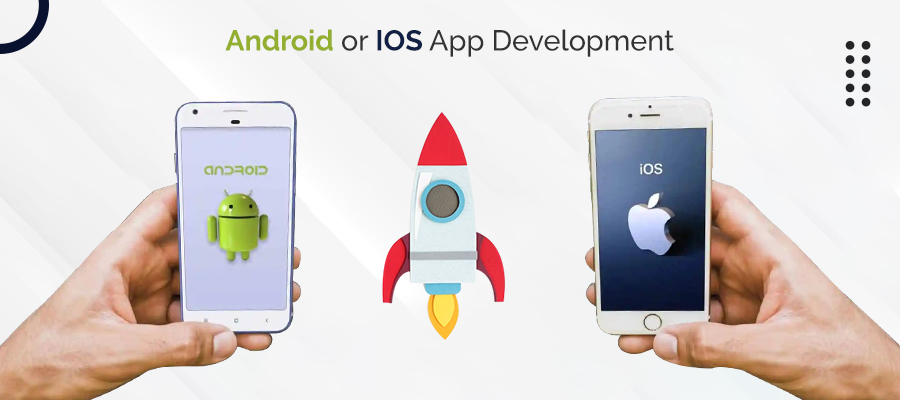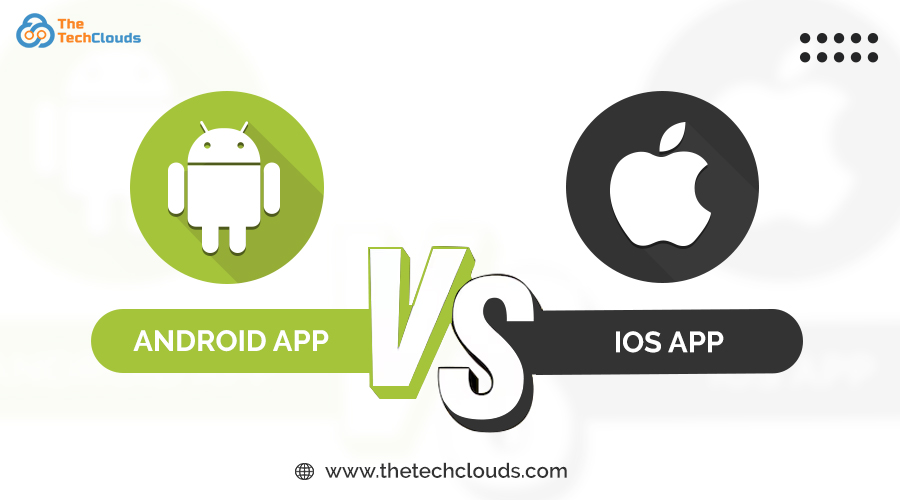A report revealed that user spending on app stores increased by 92% in 2022. This highlights how much modern customers prefer apps and software due to their convenience. Increased engagement helps boost customer retention. You’ll be surprised to know that profits can increase between 25% to 95% for every 5% increase in the customer retention rate (CRR).
Mobile applications refer to software that runs seamlessly on smartphones, tablets, or other integrated mobile devices. Developers build these apps using specific programming languages like Swift for iOS or Java for Android. Nowadays, cross-platform and native applications have become popular. The Angular framework is essential in both web and mobile app development.
The mobile app revolution really took off in 2007 with the launch of the iPhone and Android. This move sparked explosive growth and shaped the mobile app industry as we know it today.
Are you looking to develop a mobile app to expand your business? Not sure which platform is best for your app development? Let’s start by addressing the differences between iOS and Android. Which one should you choose to improve the efficiency of your services? We will answer it all in this blog post.
So, keep reading to make the best decision.
What is iOS Mobile Platform?
iOS, or iPhone Operating System, is developed by Apple Inc. It powers devices like iPhones, iPads, Apple TVs, and iPods. iOS is derived from Mac OS X and Unix-like systems, focusing on performance, privacy, and a polished user experience.
iOS apps are developed using Swift or Objective-C within Apple’s Xcode IDE. The platform supports advanced features like Face ID, Siri, iCloud integration, ARKit (for augmented reality), and seamless syncing across Apple devices.
Apple’s App Store has a strict review process, ensuring high-quality standards. Apple controls both hardware and software, resulting in seamless performance and consistent updates across devices.
What is an Android App?
Android is Google’s mobile operating system. Initially developed by Google and now managed by the Open Handset Alliance (OHA), Android is a Linux-based software package written primarily in Java.
Android’s strength lies in flexibility and scalability. Its open-source nature allows customization, making it ideal for experimentation and innovation. Developers can add system-level functions or create custom UI layers.
Android apps are developed using Java or Kotlin within Android Studio — Google’s official development environment — which supports background processing, machine learning, and other modern features.

iOS vs Android App: OS Market Share
Before you invest in any platform, take a look at the OS market share as of Q1 2023:
- China: iOS 20% / Android 78%
- India: iOS 6% / Android 90%
- USA: iOS 52% / Android 48%
Source: Counterpoint
How Our Experts Interpreted Recent Data and Market Research
Android dominates the global mobile OS market due to its wide availability across various brands and pricing options, powering over 70% of smartphones globally. However, iOS maintains a strong presence in premium markets like the U.S., UK, Canada, Australia, and Japan.
According to recent research, nearly half of the top 10 best-selling smartphones globally are iPhones.
What does this mean for your business strategy?
- Android: Ideal for emerging markets, affordability, and mass adoption.
- iOS: Best for premium markets, affluent users, and high-spending demographics.
Choose based on your audience’s location, income, and preferences.
iOS vs Android App: What Are The Differences?
Target Customers
Understanding your target audience is essential. iOS users are typically from higher-income brackets and reside in regions like the U.S., UK, Canada, and Western Europe. iOS is ideal for paid apps, luxury services, or enterprise tools.
Android users span a wider income group and prefer freemium or utility-based apps. It’s more suitable for budget-conscious audiences and apps with ad-based revenue models.
Mobile Operating System
Android is open-source and runs on a wide range of devices from brands like Samsung, OnePlus, and Motorola. iOS is exclusive to Apple products. Your app’s features and business goals will determine which OS suits you best.
iOS Development vs Android Development
Timeline
Android development takes about 30% longer due to device diversity and resolution variations. iOS, with fewer device types, is quicker to develop for, but Apple’s strict app review process can delay store approval.
Development Budget
Android development is often more expensive due to complexity and time. iOS development is faster and can be more budget-friendly. However, this varies depending on project requirements.
Development Environment
Android uses Android Studio — feature-rich and cross-platform. iOS uses Xcode, which is efficient but only available on macOS.
App Monetization Strategy & ROI
Both platforms support monetization models like:
- In-app purchases
- Ad-based revenue
- Paid applications
Choose your model based on your target audience and platform behavior.


